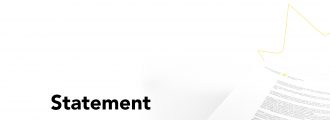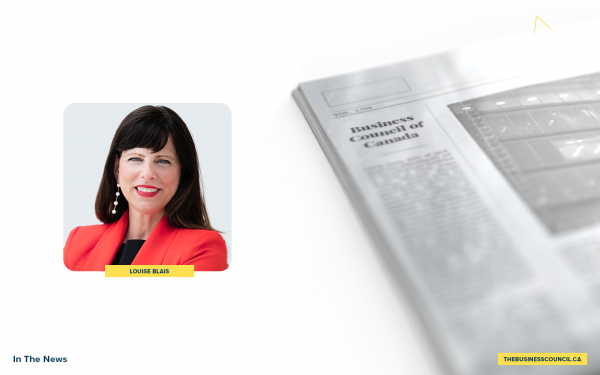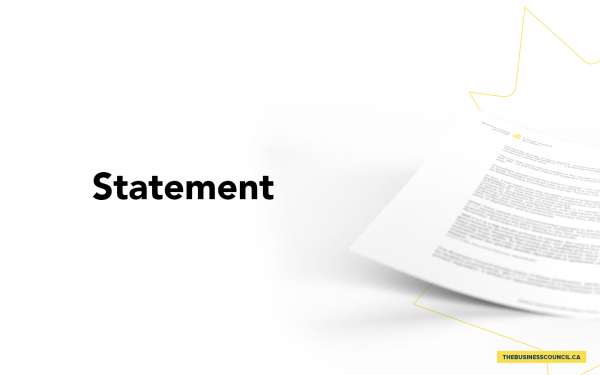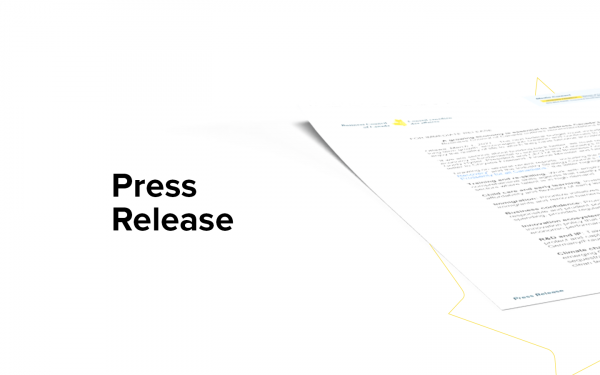Neighbours, partners, allies, friends – Canada and the United States
Canada needs a new foreign strategy that positions it to compete successfully in a changing world, according to former Canadian ambassador Louise Blais.
“There are major shifts occurring in the geopolitical landscape,” she says. “Canada will either come out as losing or winning from an economic and security perspective, but we need to have a plan.”
Blais served as a senior diplomat in Canadian embassies and consulates around the world including Tokyo, Paris, Washington and the United Nations. She is now senior special advisor to the Business Council of Canada on U.S. and international affairs.
In a conversation with Goldy Hyder on the Speaking of Business podcast, Blais emphasizes that Canada’s foreign policy must be rooted in a strong relationship with the United States, which buys 70 percent of Canada’s exports.
Even though the two countries’ economies are interdependent, many in the United States don’t recognize the importance of Canada, she says. “We have to do a better job at making sure the Americans realize just how beneficial the relationship has been to them and their own prosperity.”
Subscribe
You can find Speaking of Business wherever you get your podcasts.
Latest Podcasts
Transcript
Louise Blais:
We need to have this conversation as a country. These are major shifts in the geopolitical landscape, and Canada will either come out as losing from an economic perspective, security perspective or winning, but we need to have a strategy. We need to have a plan.
Goldy Hyder:
Welcome to Speaking of Business, conversations with Canadian innovators, entrepreneurs, and business leaders. I’m Goldy Hyder president and CEO of the Business Council of Canada. When U.S. President John F. Kennedy visited Canada 1961, he said, and I quote, “Geography has made us neighbours. History has made us friends. Economics has made us partners and necessity has made us allies.” Canada and the United States have a unique and enviable relationship, of that there should be no doubt. We share the world’s longest undefended border. We also share similar goals and values and as neighbours, friends, partners, and allies, we absolutely depend on one another. But relationships take work and they need to be maintained.
Goldy Hyder:
Just ask Louise Blais, as a senior diplomat with Canada’s Foreign Service, she has served in Canadian embassies and consulates around the world, including in Tokyo, Paris and Washington. She was Canada’s deputy permanent representative to the UN in New York from 2017 to 2021. And she has most recently been Consul General in Atlanta, Georgia representing Canada to seven southern U.S. states. In other words, she knows a lot about Canada on the world stage. Newly retired from the public service, Louise is now senior special advisor on U.S. and international affairs with the Business Council of Canada. What’s her perspective on Canada’s relationship with the United States and just what the heck is going on in the rest of the world? Let’s find out. Welcome to the podcast, Louise.
Louise Blais:
Wonderful to be with you, Goldy. Thank you for that generous introduction.
Goldy Hyder:
Well, look, let’s just jump right in. You’re fresh out of the public service. You’ve had a chance to have a really front row seat to many major events in the life of this country. Your time as a Canadian diplomat, help the listener understand, let’s start with the big thing. Canada’s relationship with the United States. Just how much has it changed?
Louise Blais:
In a way the quote that you mentioned earlier is very true still today. It was very insightful and that has not changed. Canada lives next to the world’s biggest superpower. And while we have a very privileged relationship with that country, it’s not always on an equal footing basis. We are a fraction of the size, both population wise and from an economic perspective, but we have grown incredibly interdependent and integrated since the past 30 years. That is a major change. Yet that has happened in a way that Canadians have understood very clearly, but the American population has not fully understood that interdependence, which is I think a very positive with Canada. And so that’s the part that is very uneven and that we have to do a better job at making sure that the Americans realize just how beneficial the relationship has been to them and their own prosperity story over the past 20 to 30 years.
Goldy Hyder:
How do Canadians perceive Americans and how do Americans perceive Canadians? And maybe in that answer, you can talk about some of the misconceptions around that perception.
Louise Blais:
It was very interesting because one of my postings was as Consul General in the Southeast United States, what’s referred to as the Deep South, it’s a place that is very different, not just from Canada, but from the rest of the United States, quite frankly, but at the same time, this is where the growth is happening in the United States. This is the heartland now of the economic engine of the United States. That’s something that Canadians are not fully aware of, that states like Georgia, Mississippi, Alabama, Tennessee, South Carolina, are actually now the locomotive of the U.S. economy, especially when it comes to manufacturing, but not only. And this is a place that means business, knows how to do business. And Canadians sometimes tend to look at these regions in the United States in a negative light because of the social policies that we see being played out, whether it’s gun ownership, whether it’s the debate over abortion or LGBTQ issues.
Louise Blais:
If you just look at the Americans, especially in the Deep South, through that lens, you’re missing the big picture, which is really that the United States is complex, that while there are issues that we don’t agree with, we have a lot of vested interest in making that relationship work. And these are actually, I mean, I spent, what, about five years in the South United States, and I can tell you, it is far more progressive than we give it credit for. And I have found one of the worries that I had before I left to go there was what about gender equality in the professional environment? Well, I can assure you that I faced absolutely no hurdles that I wouldn’t have faced in Canada. If anything, they have a deep respect for women in business. So that’s an example. Who would’ve thought that women, entrepreneurs and women business leaders would be doing so well in that part of the United States, but they are.
Goldy Hyder:
One of the other things about Canada-U.S. in some ways and I grew up in Alberta and at the time I know Premier Klein had said something to me that has always stuck with me, which is, he said, “Goldy, there’s far more in common North-South than there is East-West in our country.” That we should really be looking more sort of vertically as opposed to horizontally. What do you think about that?
Louise Blais:
Well, I think it’s true. I think we are realizing now that even in Canada, we have areas that are very similar to parts of United States that are getting a lot of attention these days with all the eyes being on the election processes and what’s happening with the Republican Party in the United States. So that’s not false at all. And it’s really an example of we need to work together. And I think that we can say that there was a lot of talk about the need for diversification, that we are overly dependent on the United States.
Louise Blais:
And I don’t see it that way anymore. I really do believe now with the dual political shifts that are happening around the world, we need to consolidate our economic alliance in this hemisphere. But first and foremost, United States, second Mexico and then I would venture to say south of the Mexican border, because I think we’re in for even greater shocks coming over the next 10 years, I believe, coming from the Asia Pacific region. So if we don’t get our own sort of economic story perfected in our own area, I think we’re going to be vulnerable for those shocks much more so.
Goldy Hyder:
Well, that’s interesting. That leads right into my next question to quote the current prime minister’s father, who in 1969 Pierre Elliott Trudeau famously said to then U.S. President, Richard Nixon and here’s the quote, “Living next to you is in some ways like sleeping with an elephant. No matter how friendly and even tempered is the beast, if I can call it that, one is affected by every twitch and grunt.” Is that still an accurate characterization in your mind?
Louise Blais:
It is in many ways. It is difficult for Canada to ignore major trends that are happening south of the border, be them economic or political. On the world stage, we have for a long, long time worked alongside United States. We are the same like-mindedness when it comes to issues of democracy and rule of law and governance. And that being said at the same time, we have to find our own independence and we have done so in the past. Look at the war in Iraq. We didn’t go along with that endeavor, American endeavor. I think that was obviously the right decision, but it’s a fact of life that whenever we do stand up and take a different foreign policy position, we do have to manage the consequences south of the border. I began with saying that it’s not an equal relationship and nor will it ever be. 70% of our exports go to U.S.A.
Louise Blais:
And even though we are their number one trading partner, only 18% of their exports come to Canada. We have more invested than they do in return. That’s only part of the story because what Americans don’t realize enough is that Canada has made them competitive internationally. What we export to them are components into their manufacturing industry. Without us, they wouldn’t have been able to turn around and export to the rest of the world or provide the top quality goods to their own consumers. So that story needs to be told. I mean, that needs to be understood that it’s not, when they say Buy America, it’s really a misnomer because whatever it is that they’re making, they need our components. And now more and more, they’re going to need our raw commodities. They’re going to need the minerals.
Goldy Hyder:
So why has it been so hard if it’s so obvious to make it simply Buy North America?
Louise Blais:
It shouldn’t have been this hard. My personal thoughts on this is that it’s taken us too long to talk that way as Canadians. And I think as the new administration, the Biden administration came forward, I think we just dropped a little bit of the intensity that we had learned, the posture that we had under the Trump presidency was much more active. And because we were on sense of defending our interest. Then there was a sense of false relief when the Biden administration came in and we lost a little bit of the narrative and I think we lost a little bit of the access that we had with some of the messaging.
Louise Blais:
And so I think that we have to tell that story. We have to continue to hammer. It’s been my experience, Goldy, that when I’m sitting down face to face and you’ve had this experience as well with a Senator or Congresswoman and you talk to them about these facts, they’ll nod, they understand, they get it. And it’s just that before you walked into their office, they weren’t thinking about that. They had something else to worry about. We haven’t made them worry about us enough. And I think that’s what we need to do.
Goldy Hyder:
Yeah. It’s interesting you say that. My old boss, someone who’s probably one of our finest, if not the finest, external affairs minister the country has seen, obviously Mr. Pearson ranks right up there as well but the Right Honorable Joe Clark, whom I had the pleasure of working for, has said I’ve heard him say many times that when it comes to this relationship, Canada has to take the issues to America and really make clear why is it in their interest. It’s almost incidental that it’s in our interest, but more importantly, why is it in your interest? Do you think we’ve gotten away from that a little bit in this new world where we’re so politicizing the relationship and you’re kind of reacting to whoever their administration is?
Louise Blais:
Well, I think that’s true. I think that’s fair to say that, but there is no shortcut. It’s one relationship at a time, one Senator at a time, one cabinet secretary at the time and it cannot be one offs. It has to be sustained over a period of different ministers and different interlocutors on our side. It has to almost be a nonpartisan issue this and yes, I mean, sometimes it’s easy to feed into the Canadian sentiment. That can be sometimes a little anti-American. Let’s face it. Let’s be honest about that. And so even when it’s politically not conducive, I think it’s still important to quietly continue to have those relationships. And it has been my own personal experience that that has borne fruit in the past, but it just, it needs to be, as I said, it needs to be at all levels and it needs to be sustained.
Louise Blais:
And here I can perhaps add that I think we have to do a better job at engaging governors and we have to also … it’s good old fashioned diplomacy of identifying the leaders of tomorrow, making sure that when they get into the position of powers, that they have the facts, that they know this already. It’s difficult to play catch up when a bill is drafted, as you know, it’s difficult to start to put in amendments. You’ve got to be at the table. The education has to begin sometimes 10 years in advance. I mean, there is no shortcut.
Goldy Hyder:
I gave one quote with an elephant, so I’m going to give you another one because I don’t want to leave this discussion without talking about the other partner in this equation and that’s Mexico. I remember hearing President Fox give a speech at the Chateau Laurier here in Ottawa many, many, many years ago and afterwards he’d come over to our table and we were having a conversation. We talked about living with the elephant and he looked at the table that I was at looked over and he said, “It sure must be nice to be on top.” And yet, don’t do the visual on that one, and yet really what we see is Mexico carries a lot more sway, some would say with the relationship that they have with the United States. Why is that? What is it that they’re doing that we’re not able to do? Or are we not able to do it simply because we don’t have the diaspora that the Mexican community does in the United States? Is that what this is ultimately about?
Louise Blais:
It’s a very interesting point. Obviously the diaspora is a factor. There are votes there. We have a lot of Canadians. We’re one of the biggest expat communities in the United States, but it’s not a block. And most of them don’t have U.S. citizenship. Right? They keep their Canadian citizenship. So they’re not voting. You’re not having that domestic political power that the Mexicans have. At the same token, I would want to say that the Mexicans play hard ball. I mean, they really do.
Louise Blais:
And that’s something that we have been very cautious to do with the United States. I’ve heard somebody say once there’s no fight you can win with the United States. They are bigger, but sometimes though they’re a little, you can poke the elephant and we have not done that sufficiently. And I think that the other strength that the Mexicans have is they tend to dominate in terms of the news. It’s the border issue, it’s this, it’s that, but you speak to, most Americans they’ll have a story about what’s happening with the Mexican relationship, but they take Canada for granted. We’re just not a source of trouble to the average American.
Goldy Hyder:
Maybe that’s a good thing.
Louise Blais:
It is a good thing. But at the same time, it’s just-
Goldy Hyder:
Out of sight, out of mind?
Louise Blais:
… we get forgotten in the shuffle because there’s a lot for them to worry about.
Goldy Hyder:
Now, speaking of a lot to worry about, I want to move out of North America briefly if I can and recognize that again to quote Mr. Clark, who recently in a panel just here in Ottawa in May said, “I don’t understand the world anymore. It just doesn’t make sense to me anymore.” So how is it that Canada looking at the way the world is going, what do we have to do?
Louise Blais:
You’re asking this question to a woman that was directly involved in our last campaign for the Security Council. So I can tell you, I saw very much, I was on the front line of seeing that the world has changed. You can talk about what’s happened this year, which is obviously a huge development. But before that, what has changed is that the developing world had wanted to be treated in a different way. The developing world wants to be treated as partners, not as recipients of aid.
Louise Blais:
And you have a country, China, that has understood that a long time ago. And because China at the international level was able to cast itself as a developing country, it developed kinship relationships with many countries around the world and developed a bloc very, very quietly. So that is a major shift. And the belt and road initiative is very much alive and thriving. And now you add onto that this major crisis brought on by the Russian Federation, destabilization of Eastern Europe, which is going to have a trickle down effect on the food supply around the world and the energy as we know is already affected. And then now what? What can Canada do in that environment? What’s Canada’s role?
Goldy Hyder:
That’s the question. I mean, and some are saying that this is a serious time, a serious moment where we really need to ask ourselves, have we enabled ourselves to contribute to a world at a time like this? Are we going to be able to help with energy? I mean, I’ve had the EU ambassador and the Ukrainian ambassador and others say to me, “What can Canada do to help us wean ourselves off oil and gas and other resources from countries that are hostile to Europe?” And are we going to be able to help that?
Louise Blais:
Well, we haven’t made the investment to do that. It’s going to take a long time-
Goldy Hyder:
In infrastructure or what?
Louise Blais:
In infrastructure in particular, as you know, we’ve discussed this with oil and gas and big infrastructure projects are extremely difficult. So we have to think, is that the answer? I’d like to think that it is, but I think it will take time. We need to have this conversation as a country. These are major shifts in the geopolitical landscape and Canada will either come out as losing from an economic perspective, security perspective or winning, but we need to have a strategy. We need to have a plan and we need to have that conversation.
Louise Blais:
And I’d like to see the government do that with the economic, with all sectors of Canadian society, the NGOs, obviously the business community to have a big discussion and to do some consultations and to have a grand plan, a master, a Marshall plan for Canada and what we can do and how we can, A, position ourself from a interest perspective and second, how we can really help shore up democratic countries so that we have a world that we can be secure and be proud of.
Goldy Hyder:
So one of the things that was underway even long before the war, and to some extent, certainly before this administration took office, is the importance of a trade diversification. Successive governments have helped put in place significant trade agreements from CETA in Europe to the CPTPP, where you’re working on a bilateral with the U.K. We’ve got Indonesia that we’ve announced. We’ve got some kind of early harvest with India. How important is the success of trade diversification? And can you really diversify away from America?
Louise Blais:
I think we’ve been very astute and I think Canada really does deserve to be known as the country with the most free trade deals. I mean, we are incredibly adept at doing free trade agreements, but the fact of the matter is they don’t always yield results. Not because they’re not well drafted or so on so forth, but the business community doesn’t follow suit. It doesn’t really take advantage of those things as, and then I think we need to look into why that is and understand why that is.
Louise Blais:
But the other area I think of missed opportunity for Canada in particular is our investment clout. We have some of the best pension funds in the world. And we have to, I think start thinking about investing in some of those emerging regions and countries where we can start to have a bit of, because you bring in that money, you bring that country to country partnership and you bring in the private sector, then the trade will follow. Just trade can’t just happen in a vacuum. There has to be more movement of people, movement of capital and a sustained political interest on the part of the government. Then you’ll see more trade diversification. Just won’t happen on its own.
Goldy Hyder:
Jim Carr, our former minister who actually had the title of trade diversification says that the role of government is to build a bridge and the role of business is to walk across it. Now, obviously many, many Canadian companies have been doing diversification going back to the founding of Canada. Some of them have been outside for quite some time. It’s really how to get the next level to come into that equation. Part of that, of course, is the importance of saying don’t put all your eggs in the American basket, but how do you avoid that when you have the geography that we do, the relationship that we do, the proximity that we do?
Louise Blais:
No, it is a very difficult question, but at the same time, having spent that much time in the United States, I don’t tend to see this as a negative, but in order for it not to be a negative for that partnership to truly withstand and be resilient and be one that we don’t need to diversify from takes those relationships that, as I said, you have to have a fool-proof environment. You cannot be at the whim of what the Americans might decide, whether it’s an EV tax credit, whether it’s a Buy America, every single time we just wake up and we go, “Oh my God, what are they doing?” And it scares us. And the fact of the matter is that the trade is growing, despite some of those irritants, right? Because there’s affinity, people get along.
Louise Blais:
It’s a culture, we get along from a cultural perspective. So I tend to see it as a positive. That being said, I still, at the same time, believe that it’s important for Canada to be more present in other parts of the world, particularly in our own hemisphere. I think there are not just economic reasons for that. There are security reasons for that. We have to stop seeing many of the countries in Central America and the Caribbean in a negative way. We have to start to really build the kinds of strategic relationships that will help us beyond the United States. My philosophy would be not to go too far afield. We don’t need to. We can just stay close to home and build our own Western hemisphere.
Goldy Hyder:
So one of the things that you talked about was the irritants as it’s called as many refer to it, our mutual friend, the ambassador from the United States of Canada, David Cohen has said that it’s a two way street, some of these things, and now some in the United States say Canada comes across often as just whining about a lot of things and you don’t pay attention to some of the things we want from you. For example, spending in the sovereignty of the Arctic and the North and investing in our NATO commitments. They don’t like our supply management. So is it that we give all the attention one way and don’t recognize that there’s some things that we do that are legit, that they find grievances with as well?
Louise Blais:
It’s so interesting you ask that question.
Goldy Hyder:
Remember, you’re not a diplomat anymore. You’re not a diplomat anymore. You can say what you really think.
Louise Blais:
I know, I know, I know, I just, for so many years I had the talking points on softwood lumber and on all of the things. And I really believe in what I was saying. I did. So you’re asking me a tough question, but at the same time, I think we have to pay attention to what’s being said. And I think that it’s a two way street and we have to make choices. And as Canadians we’ve been very good at making these compromises. So there’s no reason why we can’t do that with the United States, but we have to be ahead of the game though. We have to see these things coming a little bit better. We now know that we are in a sort of energy transition. We’re in a greening energy transition. We’re in an EV transition.
Louise Blais:
We know that there’s going to be areas where we might come head to head. We are competitors on some level, and we have to acknowledge that, whether it’s to attract FDI from Europe or Asia, or whether it’s in certain areas, whether it’s steel and so on and so forth. And so I think we need to be very holistic in how we approach our relationship with United States. And that’s difficult for some sectors, but you look at what’s happening now, just to give you an example, and that’s not a good news story for Canada in a way, but softwood lumber tariffs, what has been the result of that? Quietly, many Canadian companies have closed their mills in Canada and moved to the United States. The companies are doing great, but the jobs have been lost in Canada, right?
Goldy Hyder:
Let’s talk about that because you’ve come to something that I think we have to be legitimately worried about here. And that is protectionism actually works for America. They’re the number one economy in the world. They have size and scale. They actually do have better regulatory environments and the ability to build things. They also have a pro-immigration policy, albeit built on a lottery system. I much prefer ours. How much risk is there that what you just said is going to happen? If we cannot convince America that a strong North America is a strong America and that it means having a strong Canada and a strong Mexico, because that’s the real issue here, right? They think about themselves as we can do this on our own. And we’re trying to convince them that there’s strength in numbers. How critical is it that we succeed on that front?
Louise Blais:
Well, it’s existential for Canada, I think long term. And I can tell you sitting in the Southeast United States and speaking with investors coming in from Europe and Asia saying that they looked at Canada for the investment that they ended up making in the Southeast United States and not even actual legislation. The talk of potential protective legislation sometimes makes these investors decide to not take the risk of having to cross a border and come to Canada to serve the United States customer. So they’ll go straight into the United States, but we don’t hear those stories. How do you quantify that? How do you know because there’s many reasons why investment goes in one area as opposed to another? It’s not just any one thing.
Goldy Hyder:
I can tell you. One thing it is for sure is predictable, stable regulatory environment.
Louise Blais:
It can be. Absolutely. And then the other factor that I was told often by investors and site selectors when I was in the U.S. is the ability of all levels of government to work together, to unroll the red carpet. That’s critical.
Goldy Hyder:
And we’re seeing that here in Canada, to some extent, right? We’re seeing that with critical minerals and so forth.
Louise Blais:
We’re seeing it more and more, and that’s very good news. And some of these great announcements, the EV plants and battery plants that have been announced in Ontario, for example, I think is a result of very much that collaboration happening. Very happy to see Invest in Canada, the new agency of the government, putting a lot of resources and creating that concierge service. It’s hugely competitive out there. We have advantages. Our access to energy and sustainable energy. We have more of that in Canada.
Louise Blais:
I hear a lot also about investment comes down to people, how well do they get along with the community that they’re going to live in and our immigration again, is the other big, big factor. We have a great labour force in Canada, but it’s, you’re right, I think part of that success also comes through … And continuing disintegration in the United States and making sure that that narrative is clear and that we nip in the bud some of the things that we’re hearing now in the U.S., which is hugely detrimental to Canadian interests.
Goldy Hyder:
Let me sort of wrap up the podcast with the other part of you, which was very much a part of an international institution that is seen to be, I don’t know what the right word is, flailing? Perhaps you by extension have seen organizations like the World Health Organization, the WTO, the World Trade Organization, a lot of these international organizations seem to be losing their standing, their stature and their luster. And yet business will say, “We like structure. We like rules. We like order and we like clarity around that.” How much is the weakening of these international institutions something that we should be concerned by? And what should we do about that?
Louise Blais:
This is where Canada actually has a big part to play, probably an outsized part to play. You were referencing Pearson earlier. I mean, we have some great thinkers in Canada, some great diplomats, and we have people like Bob Rae at the UN for example, I mean, this is clout and thoughtfulness, and we’re extremely still very much respected on the world stage despite what some say. We have to leverage that with coming up with innovative ideas and building up coalition and organizing so that we do reform these organizations. They need to change. And we can’t just go along just because it’s too difficult. It’s too ambitious.
Louise Blais:
That’s what I hear in part sometimes. Why would we want to try to take on something that’s so difficult as reforming the UN? Well, the fact of matter is this resolution that was presented in the General Assembly a few weeks ago, that would oblige any country using their veto power, the P5 and the UN Security Council to have to explain themselves in the General Assembly. That is probably the most innovative, ambitious reform that I have seen at the UN in the past 20, 30 years. You know who led that? Liechtenstein. And I’m just saying a small country like that-
Goldy Hyder:
Yeah. Can have impact.
Louise Blais:
… could rally support, get the P5 to accept, to curtail their own veto. If Liechtenstein can do it, by gosh, Canada can do it. We have the resources to do this, to mobilize coalitions around the world. I would’ve liked to have seen a UN coalition of the “willing” because that’s been badly used, I guess for Iraq in Ukraine. I think it would’ve been a shining moment for the UN to have been the sort of the flag under which not NATO, you could have had NATO member countries, but it would’ve been a UN led mission. Now, obviously there’s humanitarian work being done in Ukraine by the UN, but you’re not seeing countries working together protecting civilians and helping open humanitarian corridors. The UN cannot do it on its own.
Louise Blais:
You need countries and their military to get in there. And if we had done that under their UN flag, it would’ve been very, very difficult for President Putin to push back on that. But there was no appetite. But Canada could have taken something like this. We could have run with it. And that’s where I think we have a big role to play on the international, in our multilateral infrastructure system. We’re at the G7, we’re at the G20 we’re at NATO, we belong to all these groups. We should leverage that.
Goldy Hyder:
Look, you and I could talk about this for a long time. I can’t thank you enough for doing this. There’s a lot of rich content in there and I think the listeners will certainly be able to benefit from your insights. Thank you for doing this. It’s good to see you, my friend.
Louise Blais:
It was wonderful to talk with you. Thank you for the great questions, Goldy.
Goldy Hyder:
Former ambassador Louise Blais is senior special advisor to the Business Council of Canada. That’s a wrap for this season of Speaking of Business. We’ll be back in September with new conversations with leaders, innovators, and entrepreneurs. We’ve heard a wide range of voices and perspectives this season, and I encourage you to listen to more of them over the summer. Look for Speaking of Business, wherever you get your podcasts, or simply go to our website at thebusinesscouncil.ca. Yeah. That’s thebusinesscouncil.ca. Until next time, I’m Goldy Hyder. Thanks for joining us.











